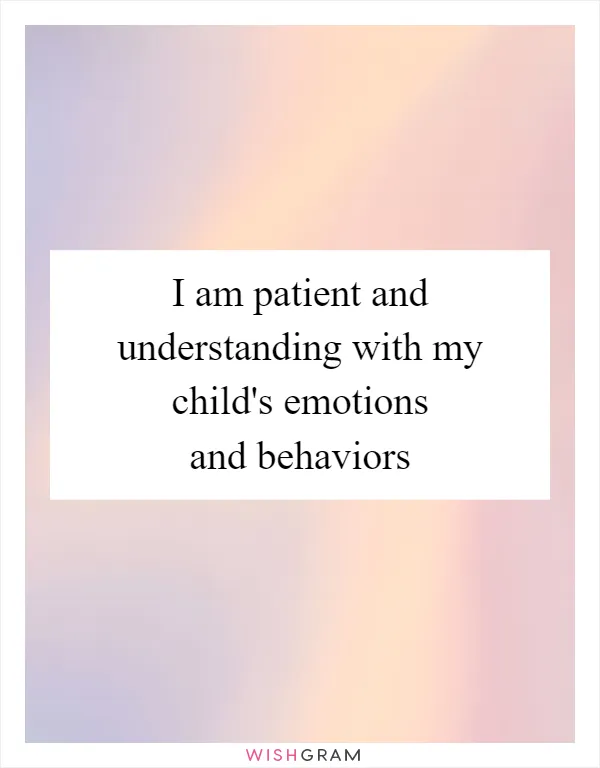I am patient and understanding with my child's emotions and behaviors
As a parent, it can be challenging to navigate your child's emotions and behaviors. It's easy to become frustrated or overwhelmed when your child is acting out or having a meltdown. However, it's important to remember that your child is still learning how to regulate their emotions and communicate effectively. By being patient and understanding, you can help your child develop these skills and build a strong, healthy relationship with them.
When you affirm that you are patient and understanding with your child's emotions and behaviors, you are setting a positive intention for your interactions with them. This affirmation reminds you to approach your child with empathy and compassion, even when they are struggling. It encourages you to take a step back and consider your child's perspective, rather than reacting impulsively or out of frustration.
One way to practice this affirmation is to take a deep breath and pause before responding to your child's emotions or behaviors. Instead of immediately reacting, take a moment to reflect on what your child might be feeling or trying to communicate. Ask yourself "What does my child need right now?" This can help you respond in a way that is supportive and nurturing, rather than dismissive or punitive.
Another way to practice this affirmation is to validate your child's emotions. Let them know that it's okay to feel angry, sad, or frustrated, and that you are there to support them. Use phrases like "I understand that you're feeling upset right now" or "It's okay to feel angry, but let's talk about how we can handle this situation". By acknowledging your child's emotions, you are helping them feel heard and understood, which can go a long way in building trust and connection.
Remember, parenting is a journey, and it's okay to make mistakes along the way. By affirming that you are patient and understanding with your child's emotions and behaviors, you are setting a positive intention for your relationship with them. With practice and patience, you can build a strong, healthy bond with your child that will last a lifetime.
